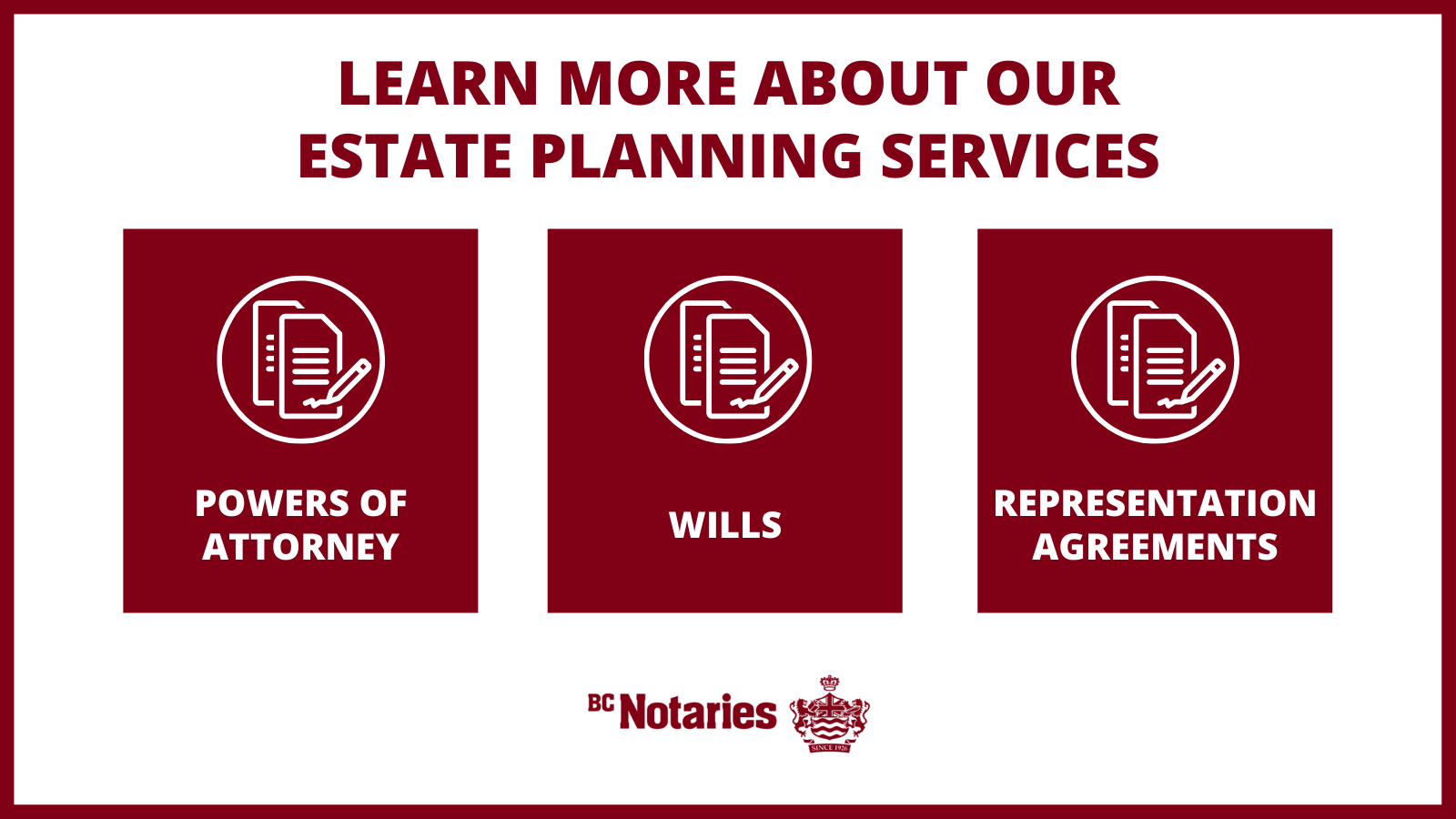Estate & Personal Planning in British Columbia
There are three important legal documents in British Columbia all residents should consider having for estate planning and personal planning. These are: a Will, Power of Attorney and a Representation Agreement. Each serves a different purpose from one another and is equally important to have.
A Will allows a person to document their wishes upon death, including whom they would like their estate to go to. A will-maker is able to name an executor/ trustee, guardian, beneficiaries and alternates to their first choices. Without a Will, a person does not get to choose any of these, rather the Wills Estates and Succession Act governs who your beneficiaries will be and how much will be allocated to them.
While a Will takes effect after a person passes away, a Power of Attorney can only be used while the adult making it is alive. The person that the adult appoints to act on his behalf is known as the attorney. The Power of Attorney allows the attorney to take care of the adult’s legal and financial matters. One can only make this document while they are fully mentally capable, given the nature and power of this legal document.
A Representation Agreement is another legal document that is only valid while the adult making it is alive. This document allows an adult to appoint a person, known as the representative, to make personal and health care matters on behalf of the adult. The Representation Agreement becomes effective once the adult becomes incapable and is unable to make decisions related to personal and health care.
There are two types of Representation Agreements: section 9 and section 7. The section 9 enhanced Representation Agreement is for adults who are fully capable and are able to make a Power of Attorney. When an adult is unable to make a Power of Attorney due to loss of mental capacity, the adult would not be able to make an enhanced Representation Agreement either. In such a situation it becomes difficult for a person who is likely already caring for the adult to fully take care of matters and communicate with third parties such as the bank or assisted living home. The section 7 standard Representation Agreement allows an adult with diminished capacity to appoint a trusted person under this document to take care of not just the adult’s basic personal and health care but also some basic financial aspects.
For estate planning, a Will allows a person to state their wishes upon death. For personal planning, adults are able to plan in advance for their legal, financial, personal and health care matters and appoint someone to handle these on the adult’s behalf during the adult’s lifetime (https://nidus.ca/resource/types-of-planning/ ). Each document serves a unique role and is equally crucial to plan for. I am passionate about sharing my knowledge and expertise on these documents and would be happy to share more detailed information. Contact me today to learn more!

